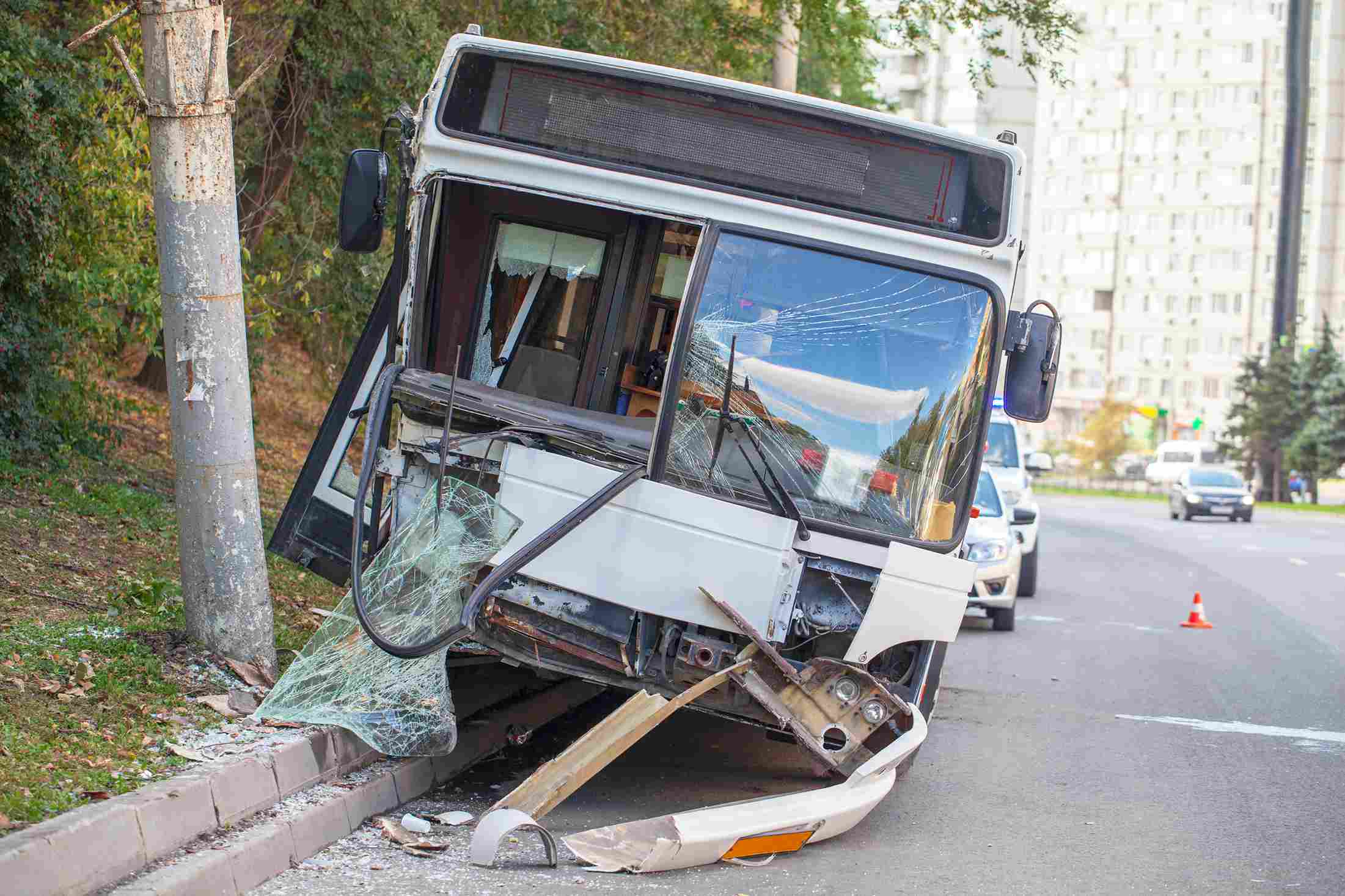
- Vaughn A. Wamsley
- Bus Accidents, Uncategorized
Bus accidents in Indianapolis can be life-changing. Whether you’re riding IndyGo through downtown, walking near Monument Circle, driving along I-65, or biking in Broad Ripple, a bus collision can cause serious injuries and unexpected financial challenges. Public buses, private shuttles, and school buses are a regular part of city life, and when something goes wrong, victims are often left unsure of what to do next. Taking the right steps after an Indianapolis bus accident can protect your health, your finances, and your future.
Prioritize Your Health and Safety
The first step after any accident is to focus on your well-being. Even if the crash seemed minor, it’s important to remember that adrenaline can hide serious injuries. Common Indianapolis bus accident injuries include broken bones, whiplash, concussions, back injuries, and internal trauma.
- Call 911 immediately, especially if the accident occurs on busy streets like Washington Street or Meridian Street.
- Accept emergency medical care at the scene.
- Visit a hospital such as IU Health Methodist, Eskenazi, or Ascension St. Vincent for a full evaluation.
Prompt treatment both protects your health and provides documentation if you need to file a claim later.
Report the Accident
If you’re riding an IndyGo bus, let the driver know you were injured. If you’re a pedestrian, cyclist, or another driver, make sure the crash is reported to law enforcement.
- Request a copy of the police accident report from the Indianapolis Metropolitan Police Department.
- For IndyGo buses, note the bus number, route (such as Route 39 – East 38th Street or Route 8 – Washington Street), and the driver’s information.
- Keep records of who responded, whether it’s IMPD or state troopers if the accident happened on I-465 or I-70.
Having official reports helps establish responsibility for the crash.
Gather Evidence at the Scene
If you’re able, document the accident scene. Indianapolis intersections like Keystone Avenue or College Avenue are high-traffic areas where accidents are often disputed.
- Take photos of the crash site, vehicles, and your injuries.
- Note weather conditions—snow and ice can be major factors in winter accidents.
- Collect contact information from witnesses; students near IUPUI or Butler University often commute on IndyGo and may provide helpful statements.
The more evidence you gather, the stronger your potential claim.
Who May Be Liable in an Indianapolis Bus Accident?
Bus accidents often involve multiple responsible parties. Depending on the situation, liability may include:
- The bus driver for negligent or reckless driving.
- IndyGo or another bus company for poor maintenance or inadequate training.
- The City of Indianapolis or a government agency if the accident involves public transit.
- Another driver if their negligence caused the crash.
Establishing liability may require an investigation into driver records, surveillance footage, and maintenance logs.
Dealing With Insurance Companies
Insurance companies often move quickly to minimize payouts after accidents. If you’ve been injured in a bus accident in neighborhoods like Fountain Square, Broad Ripple, or near downtown, be cautious about early settlement offers.
- Do not give recorded statements without knowing your rights.
- Consider the full extent of medical treatment, lost income, and ongoing care needs.
- Be aware that claims involving IndyGo may follow special notice requirements and shorter deadlines compared to private bus companies.
Working with a bus accident lawyer in Indianapolis can help ensure insurance adjusters don’t pressure you into settling for less than you deserve.
Compensation Available After an Indianapolis Bus Accident
If you were injured, you may be able to recover compensation for:
- Medical bills from hospitals like IU Health, Eskenazi, or Community Health
- Lost wages or reduced earning capacity
- Pain and suffering
- Rehabilitation or therapy
- Property damage (if your car, bike, or belongings were affected)
Every case is different, but documenting your losses thoroughly will help strengthen your claim.
Protecting Your Rights
To give yourself the best chance at fair compensation:
- Keep all medical appointments and follow your treatment plan.
- Save receipts, bills, and records related to the accident.
- Write a daily journal of your pain, symptoms, and limitations.
- Avoid posting about the accident on social media, as insurers may use this against you.
FAQs About Indianapolis Bus Accidents
- What should I do right after a bus accident in Indianapolis?
Call 911, get medical care, report the incident to law enforcement or IndyGo, and collect evidence if possible. - Who can be held responsible for my injuries?
The bus driver, IndyGo, another bus company, a government entity, or another negligent driver may be liable. - Do I need to see a doctor if I don’t feel badly hurt?
Yes. Injuries like concussions, whiplash, or internal bleeding can take hours or days to show symptoms. - How long do I have to file a claim in Indiana?
Generally, you have two years, but claims against IndyGo or the city may require notice within a much shorter period. - What if I was partly at fault for the accident?
Indiana follows comparative fault rules, so you may still recover compensation if you are less than 51% responsible, but your damages will be reduced.
Final Thoughts
Bus accidents in Indianapolis can happen anywhere—from downtown on Market Street, to Broad Ripple, to I-465 during rush hour. Victims often face steep medical bills, time away from work, and uncertainty about recovery. Taking steps like seeking medical care, documenting the scene, reporting the crash, and understanding liability can help protect your health and your rights. If you’ve been injured in a bus accident, consulting with a trusted bus accident lawyer in Indianapolis is one of the best ways to protect your future. Attorney Vaughn A Wamsley has the knowledge and dedication to guide you through the process and fight for the compensation you deserve.

